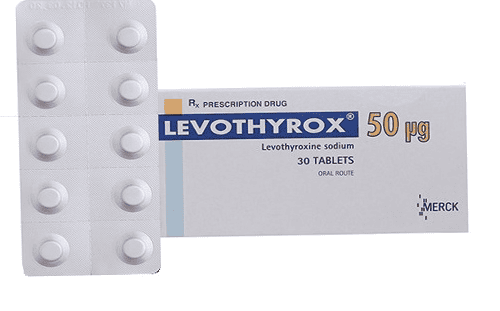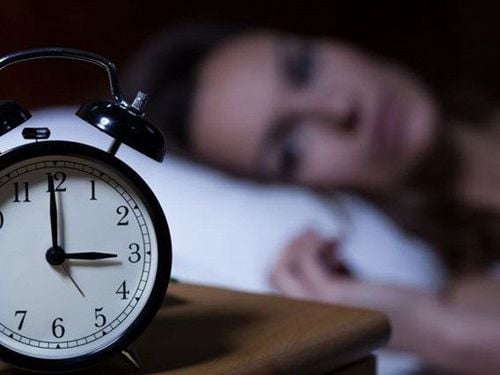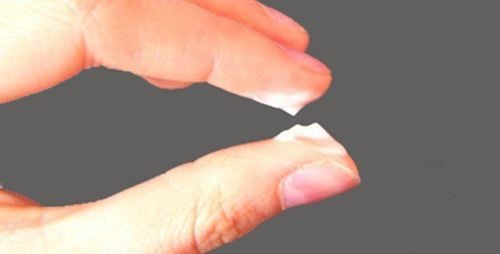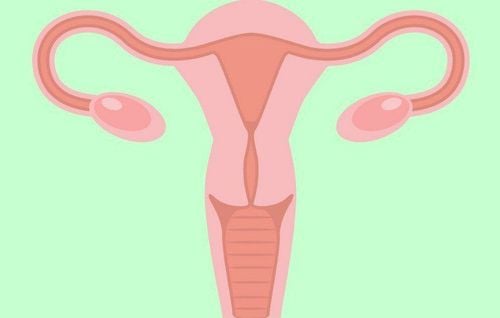This is an automatically translated article.
Hormonal imbalance is a condition in which the body has too much or too little of one or more hormones. Hormonal imbalance in women affects all aspects of women's health, beauty, and psychology.
1. Symptoms of hormonal imbalance in women
Hormones are chemical messengers that affect how your cells and organs work. It's normal for hormone levels to fluctuate over time in your life, such as before and during your period, pregnancy, or going through menopause. But there are certain medications or health problems that can also cause these hormone levels to go up or down.
Irregular periods Most women's menstrual cycles last between 21 and 35 days. If your period doesn't come at the same time every month, or your period doesn't come for several months, it means that your levels of certain hormones are too high or low (like estrogen and progesterone). If you are between the ages of 40 and 50 – the cause could be perimenopause. But irregular periods can also be a symptom of health problems like polycystic ovary syndrome (PCOS). Specialist doctors will help you find the cause and appropriate treatment.

Kinh nguyệt không đều là một trong những triệu chứng mất cân bằng nội tiết tố ở nữ giới
Problems with Sleep If you are not getting enough sleep, or your sleep is not of good quality, then a hormone imbalance could be the cause. Progesterone, a hormone produced by the ovaries, helps you fall asleep. If your progesterone levels are lower than normal, then it will be difficult for you to initiate a sleep and keep it deep. Low estrogen levels can trigger hot flashes or night sweats, which make it difficult to fall asleep.
Persistent acne It is normal to get pimples before or during your period. But when acne doesn't go away after that, it could be a symptom of hormonal problems. An excess of the hormone Androgen (Greek for "man," a hormone found in both sexes) can overwhelm your oil glands. Androgen also affects the skin cells in and around your hair follicles. Both of the above cause your pores to become clogged and cause breakouts.
Brain fog Experts aren't sure how hormones affect the brain. What they do know is that changes in estrogen and progesterone can make your brain feel "fuzzy" and even make it difficult to remember. Some experts think that estrogen can affect chemicals in the brain called neurotransmitters. Problems with concentration and memory are especially common during perimenopause and menopause. But they can also be a symptom of other hormone-related conditions, like thyroid disease. Tell your doctor if you have trouble thinking clearly.
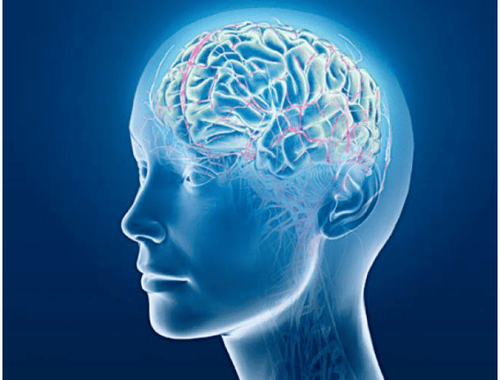
Thay đổi nội tiết tố ảnh hưởng tới tình trạng thu thập và ghi nhớ của não bộ
Digestive problems Your gut is covered with small cells called receptors, which respond to estrogen and progesterone. When levels of these hormones are higher or lower than normal, you will likely notice changes in the digestion of food.
That's why diarrhea, stomach pain, bloating and nausea can increase or get worse before and during your period. If you have digestive issues as well as acne issues and fatigue, your hormone levels may be dropping.
Constantly feeling tired Feeling tired all the time? Fatigue is one of the most common symptoms of a hormone imbalance. Excessively high levels of progesterone can make you drowsy. And if your thyroid gland — the butterfly-shaped gland in your neck — secretes too little thyroid hormone, it can cause you to lose energy. Thyroid function tests will show if your hormone levels are too low. If thyroid hormone levels are really low, you should see a specialist and get treatment.
Mood swings and depression Researchers think rapid drops or changes in hormone levels cause moodiness and boredom. Estrogen affects key brain chemicals such as serotonin, dopamine, and norepinephrine. But other hormones also use the same pathways as neurotransmitters, which also play a big role in how you feel.
Appetite and weight gain When you feel sad or irritable, because of low estrogen levels, you may want to eat more. That may be why a drop in hormones is linked to weight gain. Lowering estrogen levels also affects the body's levels of leptin, a hormone that helps regulate food intake.

Nồng độ estrogen xuống thấp khiến bạn cảm thấy gia tăng cơn thèm ăn
Headaches There are many causes of headaches. But for many women, a drop in estrogen is the culprit. That's why women often experience headaches just before or during their period, when estrogen levels drop. Headaches that are regular or occur at the same time each month could be conclusive evidence that estrogen levels are changing.
Vaginal dryness It is normal for women to experience this symptom from time to time. But if you often find your vagina dry and uncomfortable, it could be due to a drop in estrogen. This hormone keeps the tissues of the vagina moist and comfortable. When estrogen levels drop because of an imbalance, it causes a decrease in vaginal discharge, as well as making the vagina too tight.
Loss of libido Most people think that testosterone is the male hormone, but the female body also produces this hormone. If this testosterone level is lower than normal, then sex drive will be reduced.
Changes in Breasts A drop in estrogen causes the density of breast tissue to decrease. And the increase of this hormone causes the breast tissue to thicken, creating the appearance of tumors and cysts. It is important to see a specialist if you notice any changes in your breasts.
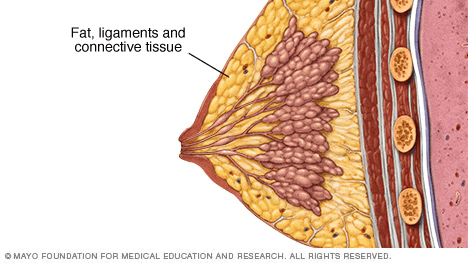
Sụt giảm estrogen khiến mật độ của các mô vú giảm
2. Testing and Diagnosis
There is no single test that doctors can diagnose hormone imbalances with. Start by making an appointment with your doctor for a physical exam. Be prepared to describe the symptoms you are experiencing and the length of time they have occurred. Bring a list of all medications, vitamins, and supplements you are currently taking.
Your doctor may ask you questions like:
How often do you experience symptoms? Is there anything you can do to ease your symptoms? Have you recently lost or gained weight? Are you more stressed than usual? When was your last period? Are you planning to get pregnant? Do you have difficulty getting or maintaining an erection of the vagina? Do you experience vaginal dryness or pain during sex? Depending on your symptoms, your doctor may recommend one or more diagnostic tests. You can also ask your doctor to perform these tests.
Blood test Your blood sample will be sent to a laboratory. Most hormones can be found in a blood sample. Your doctor may do blood tests to check your levels of the thyroid hormones, estrogen, testosterone, and cortisol.
Gynecological examination Clinical examination is very important. Your doctor may perform a cervical smear to look for unusual bumps, cysts, or masses.
Ultrasound An ultrasound machine uses sound waves to build an image of the inside of the human body. Doctors can use ultrasound to take pictures of the uterus, ovaries, and thyroid.
Additional tests Biopsy Magnetic resonance imaging (MRI) X-rays

Phụ nữ tiến hành các xét nghiệm hình ảnh để chẩn đoán nguy cơ mất cân bằng nội tiết tố
3. Treatment options for hormone imbalance
Treatment for a hormone imbalance will depend on the cause. Common treatment options include:
Estrogen therapy If you are experiencing menopausal discomfort such as hot flashes, your doctor may recommend that you take a small dose of estrogen. Be sure to discuss the benefits and risks of hormone replacement therapy with your doctor.
Topical (Vaginal) Estrogen If you experience vaginal dryness and pain during sex, you may want to try an estrogen cream, suppository, or vaginal ring. This topical treatment can help avoid the risks associated with hormones affecting other parts of the body, or estrogen traveling through the bloodstream to a specific organ..
Hormonal contraception If you're trying to get pregnant, using hormonal birth control can help regulate your menstrual cycle. Hormonal methods of contraception include:
Birth control pills Contraceptive patches Injectable contraceptives Vaginal rings Intrauterine devices (IUDs)
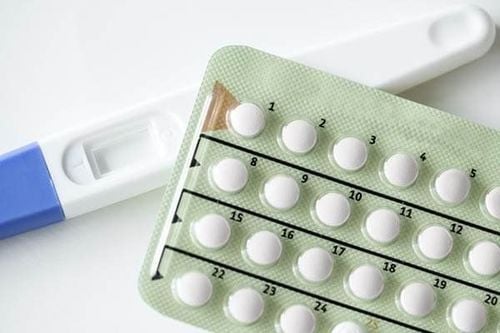
Sử dụng thuốc tránh thai để giúp điều chỉnh chu kỳ kinh nguyệt của
Anti-androgen Androgen is a male sex hormone and is present in the body of both men and women. Women with high androgen levels often choose to take an anti-androgen to prevent its effects, such as:
Hair loss Facial hair growth Pimples Testosterone therapy Testosterone supplementation can reduce the symptoms of low testosterone in men. In adolescents with delayed puberty, testosterone supplementation also helped stimulate the onset of puberty. It comes in the form of an injection, patch, or cream.
Thyroid hormone therapy In people with hypothyroidism, the addition of synthetic thyroid hormone Levothyroxine (Levothroid, Levoxyl, Synthroid, Unothroid) can bring balance to hormone levels.
Flibanserin (Addyi) and bremelanotide (Vyleesi) Addyi and Vyleesi are the only drugs approved by the US Food and Drug Administration (Food and Drug Administration) for the treatment of low libido in women. premenopausal women. Addyi comes in pill form, while Vyleesi is a self-administered injection.
These drugs can have serious side effects, like severe nausea and changes in blood pressure. Talk to your doctor to find the right medication for you, and only take it as directed by your specialist.
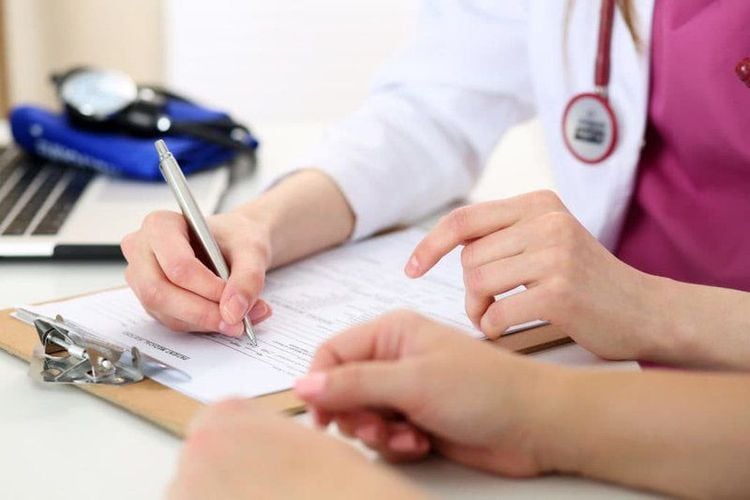
Nên trao đổi với bác sĩ trước khi quyết định sử dụng thuốc để tránh bị tác dụng phụ
Natural remedies and supplements There are many supplements on the market that claim to be able to treat menopause and hormone imbalances. However, there are very few of them that have been verified by scientists.
Many of these supplements contain hormones extracted from plants. They are sometimes called “biocompatible” hormones because they resemble hormones naturally occurring in the body. There is no evidence that they are more effective than conventional hormone therapies.
Some people find that practicing yoga can help reduce hormone imbalances. Yoga is great for health, flexibility, and balance. Practicing this sport also helps to lose weight because it helps regulate hormone levels in the body.
You can also make some lifestyle changes as below:
Lose weight . Losing 10 percent of a woman's total body weight can help regularize periods and also increase her chances of getting pregnant. For men, losing weight also improves erectile function. Eat right . A balanced diet plays an important role in creating a healthy body. Get rid of unwanted hair. If you have excess hair on your face or body, you can use hair removal creams, or laser and electrolysis methods. Relieves vaginal discomfort. Use a lubricant or moisturizer that is free of parabens, glycerin, and petroleum jelly. Avoid hot flashes. Identify triggers for hot flashes such as hot temperatures, spicy foods, and hot drinks. Customers can directly go to Vinmec health system nationwide to visit or contact the hotline here for support.
Articles refer to sources: webmd.com, healthline.com




